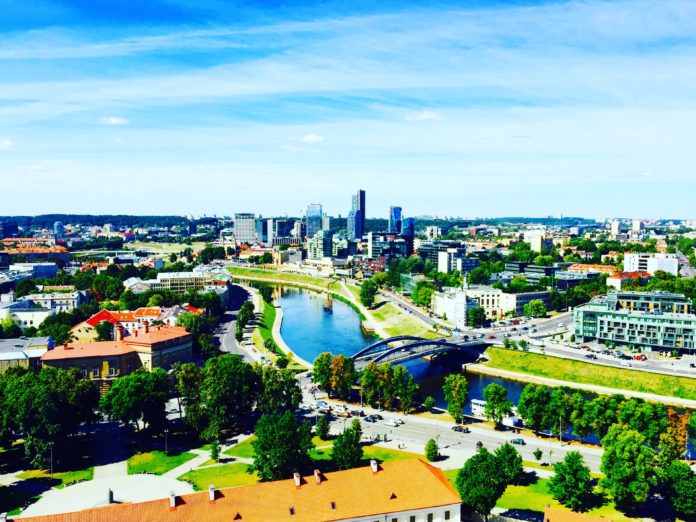Lithuania has been busy transforming itself into a very startup friendly country in recent years, with the number of active startups growing from around 80 five years ago to 520 today.
There are many reasons for a startup to set up shop in Lithuania; according to the World Bank, it is the 16th most business friendly country in the world. In Lithuania it only takes three days to start a new business, and three months to receive a banking licence (hence several fintechs, such as Revolut, establishing themselves there); the country ranks first in the CEE for collaboration between universities and industry for R&D; it has some of the lowest taxes in Europe and the lowest costs of living; a highly skilled workforce; and Vilnius has been ranked one of the top ten smart cities in the world by CNN – have I convinced you yet?
Let’s take a look at 10 of the rising stars from Lithuania’s growing startup ecosystem to look out for in 2019:
SketchAR is an app for teaching drawing using augmented 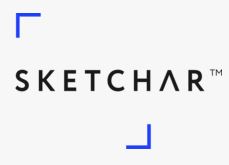 reality, machine learning, and neural networks. In handheld mode, the app places a virtual image over paper in your smartphone’s camera view so you can watch your artwork unfold in your camera while you trace and paint over the real object. In desktop mode, the app uses virtual reality standards like Microsoft’s Hololens to let you do the same thing while wearing VR glasses. The SketchAR app, available for iOS, Android and other “desktop” VR platforms, won the 2018 Webby Award for the Best Use of Augmented Reality. Founded in 2016, SketchAR is based in Vilnius and has raised a total of €500k in funding across two rounds.
reality, machine learning, and neural networks. In handheld mode, the app places a virtual image over paper in your smartphone’s camera view so you can watch your artwork unfold in your camera while you trace and paint over the real object. In desktop mode, the app uses virtual reality standards like Microsoft’s Hololens to let you do the same thing while wearing VR glasses. The SketchAR app, available for iOS, Android and other “desktop” VR platforms, won the 2018 Webby Award for the Best Use of Augmented Reality. Founded in 2016, SketchAR is based in Vilnius and has raised a total of €500k in funding across two rounds.
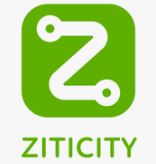 Logistics startup Ziticity is being called an “Uber for things”, offering last-mile on-demand delivery. On its platform anyone can sign up to be a “Zitter” and earn a little extra money in their free time delivering packages, documents, and other items from pick-up points to customers throughout Vilnius and now in Tallinn, with an average delivery time of 42 minutes. Founded in 2017, the startup is already working with major delivery services and planning collaborations with supermarkets in the future, as well as expansions to more cities. In February, Ziticity received a €50k investment from the Latvian Business Angels Network at the TechChill conference in Riga, and in March, won first place in the Base Camp hackathon in Tallinn out of 100 startups.
Logistics startup Ziticity is being called an “Uber for things”, offering last-mile on-demand delivery. On its platform anyone can sign up to be a “Zitter” and earn a little extra money in their free time delivering packages, documents, and other items from pick-up points to customers throughout Vilnius and now in Tallinn, with an average delivery time of 42 minutes. Founded in 2017, the startup is already working with major delivery services and planning collaborations with supermarkets in the future, as well as expansions to more cities. In February, Ziticity received a €50k investment from the Latvian Business Angels Network at the TechChill conference in Riga, and in March, won first place in the Base Camp hackathon in Tallinn out of 100 startups.
 Dancerbus is trying to transform public transport with its new generation super lightweight electric city bus, which is built with innovative materials and uses wind power. The buses are designed to be dramatically cheaper to operate than traditional buses, consume less energy, and are quick to charge, spacious, and comfortable. The bus also includes a mobile monitoring system and live data sharing, a multifunctional rear screen and wifi, and has a modern, elegant exterior design. The Dancer project’s aim is to make public transport an integral part of cities, combining technology, art, and industry to improve the urban environment. Founded in 2015 and based in Klaipėda, the startup raised an undisclosed seed round in June 2017.
Dancerbus is trying to transform public transport with its new generation super lightweight electric city bus, which is built with innovative materials and uses wind power. The buses are designed to be dramatically cheaper to operate than traditional buses, consume less energy, and are quick to charge, spacious, and comfortable. The bus also includes a mobile monitoring system and live data sharing, a multifunctional rear screen and wifi, and has a modern, elegant exterior design. The Dancer project’s aim is to make public transport an integral part of cities, combining technology, art, and industry to improve the urban environment. Founded in 2015 and based in Klaipėda, the startup raised an undisclosed seed round in June 2017.
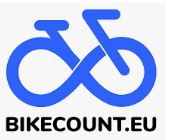 Founded in 2018 in Vilnius, Bikecount.eu is a smart city startup using video analytics to produce accurate and affordable bicycle counters that track the number of cyclists passing by, helping cities to assess the need for additional bike infrastructure, such as shared bikes, bike parking, or additional bike lanes. The counters don’t require any hardware sensors, making them easy to install on existing light poles. Its solution can also count the number of people passing by, giving cities more insights about pedestrian traffic situation. Bikecount.eu envisions a future where cities are greener, with residents switching from cars to bikes, and where municipalities and other stakeholders have the data necessary to make number-driven decisions on how to best allocate resources. Vilnius has so far implemented a few of Bikecount.eu’s smart camera bike cameras on its streets.
Founded in 2018 in Vilnius, Bikecount.eu is a smart city startup using video analytics to produce accurate and affordable bicycle counters that track the number of cyclists passing by, helping cities to assess the need for additional bike infrastructure, such as shared bikes, bike parking, or additional bike lanes. The counters don’t require any hardware sensors, making them easy to install on existing light poles. Its solution can also count the number of people passing by, giving cities more insights about pedestrian traffic situation. Bikecount.eu envisions a future where cities are greener, with residents switching from cars to bikes, and where municipalities and other stakeholders have the data necessary to make number-driven decisions on how to best allocate resources. Vilnius has so far implemented a few of Bikecount.eu’s smart camera bike cameras on its streets.
 Clusco is a construction tech platform that helps builders easily find the construction equipment they need and lease it. Clusco puts cranes, bulldozers, loaders, forklifts, as well as handheld tools at the contractor’s fingertips. Builders can download the Clusco iOS or Android apps or just browse the Clusco website. The Clusco platform also calculates the preliminary value of the order and summarises the terms, leading to quick approval of the lease agreement and rules. Clusco is based in Kaunus, Lithuania, and raised €96k in a seed round in June 2017.
Clusco is a construction tech platform that helps builders easily find the construction equipment they need and lease it. Clusco puts cranes, bulldozers, loaders, forklifts, as well as handheld tools at the contractor’s fingertips. Builders can download the Clusco iOS or Android apps or just browse the Clusco website. The Clusco platform also calculates the preliminary value of the order and summarises the terms, leading to quick approval of the lease agreement and rules. Clusco is based in Kaunus, Lithuania, and raised €96k in a seed round in June 2017.
 Founded in 2018 in Vilnius, Simb is a banking app for families, to help them control over their finances. It shows balances of all family members in one place, and presents the spending overview at the household level. Budget limits can be set for each person, users can see how much members of their family spend and on what, and spending habits can be easily filtered by family members or by spending category and visualised. The family can create savings goals, send and request money, manage subscriptions, and parents can make sure children spend money safely and appropriately with a special debit card with parental controls.
Founded in 2018 in Vilnius, Simb is a banking app for families, to help them control over their finances. It shows balances of all family members in one place, and presents the spending overview at the household level. Budget limits can be set for each person, users can see how much members of their family spend and on what, and spending habits can be easily filtered by family members or by spending category and visualised. The family can create savings goals, send and request money, manage subscriptions, and parents can make sure children spend money safely and appropriately with a special debit card with parental controls.
 Founded in 2016 in Kaunas, DOGO is a mobile app that helps you train your dog using personalised feedback to recommend appropriate exercises, tailored to your dog’s progress. It offers over 60 tricks to teach your dog with step-by-step instructions, and assesses your dog’s progress with video exams, which are then reviewed by dog training specialists. The startup insists that dogs are communicative creatures, and promises to help you better understand and communicate with your dog. Dogo is available on iOS and Android, and has a rating of 4.9 stars from over 26k reviews on Google Play.
Founded in 2016 in Kaunas, DOGO is a mobile app that helps you train your dog using personalised feedback to recommend appropriate exercises, tailored to your dog’s progress. It offers over 60 tricks to teach your dog with step-by-step instructions, and assesses your dog’s progress with video exams, which are then reviewed by dog training specialists. The startup insists that dogs are communicative creatures, and promises to help you better understand and communicate with your dog. Dogo is available on iOS and Android, and has a rating of 4.9 stars from over 26k reviews on Google Play.
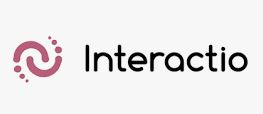 Vilnius-based Interactio is a real-time audio broadcasting and translation solution for conferences, houses of worship, and overflow audiences. It doesn’t require expensive conference equipment – event planners just need a headset and laptop for each language, an interpreter, and stable Internet. Listeners can then stream the audio from anywhere in the world – they just need to download the free app. Founded in 2014, the startup received €580k in a seed round in 2017.
Vilnius-based Interactio is a real-time audio broadcasting and translation solution for conferences, houses of worship, and overflow audiences. It doesn’t require expensive conference equipment – event planners just need a headset and laptop for each language, an interpreter, and stable Internet. Listeners can then stream the audio from anywhere in the world – they just need to download the free app. Founded in 2014, the startup received €580k in a seed round in 2017.
 Founded in 2017 in Vilnius, MyMusic.travel is a search engine that connects music fans with their favorite artists, and allows them to book tickets and travel packages worldwide through its platform, which features over 1,000 events. On the website, users can seamlessly find their favourite artist, choose a concert, book flights and hotels for their trip, and enjoy the music. Still in beta, we’re waiting for MyMusic.travel to expand its platform with more artists in 2019.
Founded in 2017 in Vilnius, MyMusic.travel is a search engine that connects music fans with their favorite artists, and allows them to book tickets and travel packages worldwide through its platform, which features over 1,000 events. On the website, users can seamlessly find their favourite artist, choose a concert, book flights and hotels for their trip, and enjoy the music. Still in beta, we’re waiting for MyMusic.travel to expand its platform with more artists in 2019.
 The Pomodone app offers a way to manage your workflow using the Pomodoro technique – a time management method developed by Francesco Cirillo in the late 1980s. The technique uses a timer to break down work into intervals of 25 minutes in length, separated by short breaks. Practitioners feel the technique improves motivation, creativity, and productivity. While a timer may seem trivial, it is noteworthy that Pomodone has integrated its timer app with a wide range of productivity software for handheld and desktop systems including Todoist, Trello, Wunderlist, Asana, Evernote, Slack, Microsoft Outlook Tasks, Google Calendar, and Chrome. The Pomodoro app includes a number of additional features including logging, an essential feature for doctors, therapists, and other professionals and workers who bill or are paid by the hour or by the task.
The Pomodone app offers a way to manage your workflow using the Pomodoro technique – a time management method developed by Francesco Cirillo in the late 1980s. The technique uses a timer to break down work into intervals of 25 minutes in length, separated by short breaks. Practitioners feel the technique improves motivation, creativity, and productivity. While a timer may seem trivial, it is noteworthy that Pomodone has integrated its timer app with a wide range of productivity software for handheld and desktop systems including Todoist, Trello, Wunderlist, Asana, Evernote, Slack, Microsoft Outlook Tasks, Google Calendar, and Chrome. The Pomodoro app includes a number of additional features including logging, an essential feature for doctors, therapists, and other professionals and workers who bill or are paid by the hour or by the task.
By the way: If you’re a corporate or investor looking for exciting startups in a specific market for a potential investment or acquisition, check out our Startup Sourcing Service!



